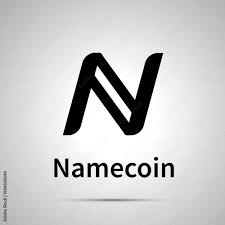Namecoin is a pioneer in decentralized domain name registration and one of the first cryptocurrencies in the cryptocurrency market. It was launched in April 2011 with the goal of combining the security and immutability of blockchain computing with the features of standard domain name systems. This article dives into its history, looking at its beginnings, development, and influence on the cryptocurrency ecosystem.

Origins of Namecoin
Namecoin has its roots in Bitcoin, the world’s first decentralized cryptocurrency. The elusive Satoshi Nakamoto established the notion of the blockchain system, which provided the base for the creation of this currency. In 2010, an early Bitcoin enthusiast named Vincent Durham advocated the creation of a decentralized domain name system (DNS) utilizing the Bitcoin blockchain. Inspired by this notion, a developer going by the alias “Vinced” started to work on putting the idea into action. This marked the birth of Namecoin.
Development and features
Namecoin was first proposed by Vincent Durham, who recognized the need for a decentralized DNS system to combat censorship and control. Based on Bitcoin’s codebase, Durham introduced Namecoin as a separate blockchain that operates alongside Bitcoin. This approach ensured compatibility with Bitcoin’s infrastructure while adding new functionalities specific to Namecoin.
One of the most important components of Namecoin’s evolution has been its merge-mining technique. It may be mined concurrently with Bitcoin, allowing miners to protect both blockchains at the same time. This solution secures Namecoin while exploiting Bitcoin’s current mining power, making it more resistant to assaults. The following are the key features of this currency.
Decentralized DNS
Namecoin’s primary feature is its ability to provide decentralized domain name registration and resolution services. Traditional DNS systems rely on centralized authorities, which can be vulnerable to censorship and control. It eliminates this centralization by storing site name ownership information on its blockchain, making it resistant to censorship and tampering.
.bit Domain Extension
It uses the .bit domain extension to differentiate its decentralized domain names from traditional ones. The .bit domains are registered on the Namecoin blockchain, allowing users to own and control their domains without relying on any central authority. This feature ensures freedom of expression and protects against domain seizures.
Identity and authentication
The currency enables users to associate their personal identities and public keys with their domain names. This feature allows for secure authentication and verification, making it useful for applications such as encrypted email, secure chat, and identity verification systems.
Uncensorable websites
Due to its decentralized nature, websites hosted on its domains cannot be easily censored or taken down. This capability is especially useful in areas where internet restriction is rampant, allowing individuals and organizations to freely interact and exchange information.
Digital identity systems
Namecoin has the potential to be used to create decentralized digital identification systems. Users may have control over their own data and select who can access it by connecting sensitive data with domain names. This aspect has the potential to transform the way digital identities are maintained by providing users with greater control and privacy.
Impact and adoption
Namecoin’s impact on the cryptocurrency landscape cannot be overstated. It pioneered the concept of decentralized domain name registration, inspiring the development of numerous other blockchain-based projects, such as Ethereum Name Service (ENS) and Handshake. Its influence also extended beyond the realm of domain names. Its decentralized identity system served as a precursor to the concept of self-sovereign identity, which has gained significant traction in recent years.
Despite its innovative features and potential, Namecoin faced challenges in gaining widespread adoption. The domain name industry, dominated by established players, had little incentive to embrace a decentralized alternative. Additionally, the technical complexity of using Namecoin hindered its accessibility for the average internet user. Nevertheless, it remains a respected and influential project within the cryptocurrency community.
Recent developments
While Namecoin’s development has slowed in recent years, it still maintains an active community of developers and supporters. The project has witnessed periodic updates, ensuring its compatibility with the latest technologies and addressing any security vulnerabilities. Furthermore, it has been involved in collaborations and partnerships with other blockchain projects to explore synergies and promote the adoption of decentralized domain name systems.
Looking ahead, its future remains uncertain. Its impact and legacy, however, will continue to shape the cryptocurrency landscape. As the world becomes increasingly aware of the limitations of centralized systems, the principles and ideas pioneered by Namecoin will likely gain renewed attention and appreciation.
Conclusion
The history of Namecoin is entwined with the early days of Bitcoin. It pioneered concepts like as decentralized name registration and identification systems, which continue to impact blockchain technology development. Despite its acceptance issues, its significance in the cryptocurrency environment cannot be overstated. The principles and ideas underlying it will stay relevant as the industry evolves, providing a reminder of the power and promise of decentralized systems.
You can also find these articles helpful
Is it profitable to trade Siacoin
6 Popular Cryptocurrency Mining Algorithms You Should Know
Everything you need to know about Mdex exchange










